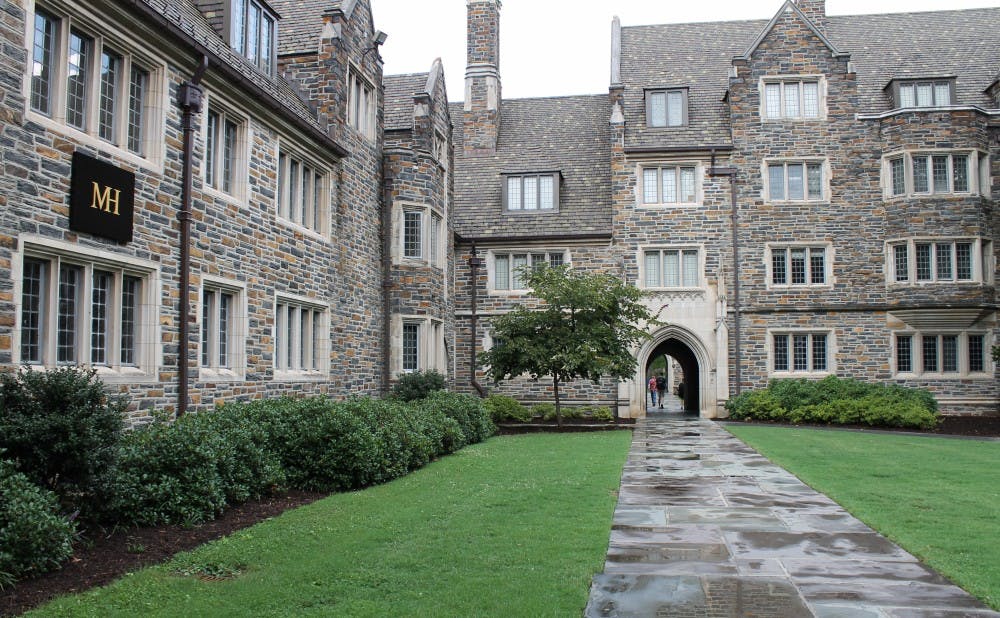Housing, Dining and Residence Life is considering a proposal from Duke Student Government that would give students a better chance of living on campus with more than six friends.
Currently, HDRL rules allow for blocking groups of three to six students. Senior Jacob Lettie, a policy advisor in DSG's cabinet, has submitted a proposal to DSG outlining his idea for "smart blocking," which would allow students to block with more people in exchange for getting a less-desired housing location. The new blocking rules would let groups of seven to 12 students have the chance to live together.
“[The proposal] is designed to expand students’ options for housing by giving them the choice to prioritize proximity to other blocks of friends over getting their most preferred location," Lettie said.
He added that groups could create two blocks and choose an “emphasize proximity option” on the housing application in order for the two blocks to be combined into a larger group.
“If blocks are combined, the block with the better lottery pick will be switched out with a block neighboring the block with the worse lottery pick,” he said. “However, opting to live in a smart block doesn’t hurt your location if the two blocks can’t be combined, so it’s risk-free.”
Dean for Residential Life Joe Gonzalez has been working with Lettie to outline the potential complications and impacts of "smart blocking."
“It’s an idea HDRL will be looking at later this Spring," he said. "[If chosen], it would be in place for house assignments in spring of 2018."
Gonzalez added that the notion of larger blocks has been discussed consistently during the last few years, but that most blocks in past years have been made up of less than six students.
Lettie noted, however, that he thinks the current blocking rules, with a maximum of six people, are too limiting.
“The difficulty involved with just trying to live together with a group of friends at Duke has always surprised me, and it’s been something that I’ve been thinking about ever since my first year at Duke,” he said.
First-year Tarika Iyer said that she also thinks the six-person blocks are not big enough and expressed interest in the "smart blocking" option after having trouble filling out the housing application this year.
“[My friends and I] were really keen on having all of us together,” Iyer said. “I think it’s important to live with people you like and are friends with.”
Iyer added she was disappointed when her group of eight friends eventually had to split up into two blocks.
First-year Cindy Pan also stressed the importance of living with her friends, but indicated that she would not select the "smart blocking" option, as she values her preferred dorm more than proximity to another block of friends.
“I think the current block system works fine,” she said.
"Smart blocking" would not interfere with the current housing application, but rather give students another blocking option, Lettie explained.
“The goal of 'smart blocking' is ultimately just to give students the ability to have more of a say when it comes to their housing,” he said.
Get The Chronicle straight to your inbox
Signup for our weekly newsletter. Cancel at any time.

